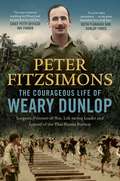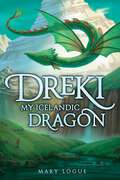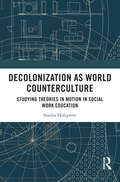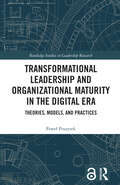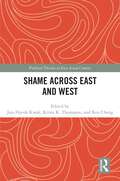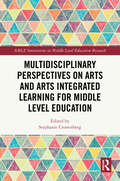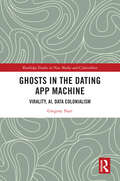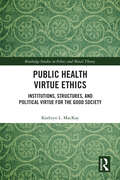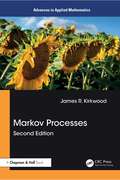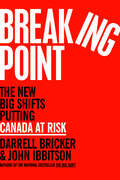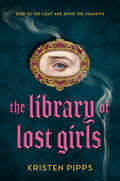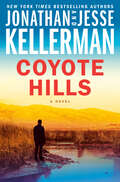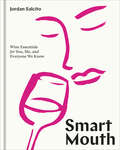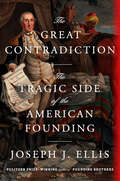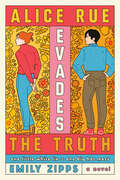- Table View
- List View
The Voice Inside: The Illustrated Edition
by John FarnhamA stunning, full-colour special edition of the #1 bestselling memoir from the much-loved Australian legend, featuring never-before-seen photographs and a brand-new chapterGrowing up in London and Melbourne, music was always part of John Farnham's world. But the young John never dreamed of what was to come. Pop stardom in the 1960s. The release of Whispering Jack, the critically acclaimed and highest-selling Australian album of all time. A decades-long touring career. Twenty-one ARIA awards. Australian of the Year. The list of accolades and achievements is long - so, at first glance, the John Farnham story is one filled with remarkable highs.It is, however, so much more than that. It is the story of the resilience John found as his stellar career stalled, record companies turned their backs, and he faced financial ruin. John has never shown how hard he fell and how difficult it was to stay true to himself in an industry that can be ruthless. It is the story of family, friendship and finding your voice.Throughout a lifetime filled with the highest of highs and the lowest of lows, John has remained steadfast, never losing his unique musical talent, creative strength nor his powerful ability to make human connections through his music. After his devastating cancer diagnosis and far too many goodbyes, John is now telling his story, his way.The perfect gift for fans and an essential collector's item, The Voice Inside: The Illustrated Edition is like sitting down with an old friend sharing stories that are both deeply personal and wildly entertaining. Written alongside award-winning filmmaker Poppy Stockell, this is a captivating and powerfully honest insight into the man whose music is the soundtrack to so many of our lives.Praise for The Voice Inside:'Honesty, intimacy, vulnerability - these are the traits we tend to crave from this genre. And Farnham, ably assisted by Stockell as both interlocutor and co-writer, succeeds . . . A compelling and complete memoir' THE AUSTRALIAN 'At its heart, John Farnham's story is one of resilience . . . Moving and at times shocking' WOMAN'S DAY 'Completely compelling. It's the look inside his life we always dreamt of but never thought we'd get . . . It's been worth the wait' ABC NEWS '[A] fascinating and rather brave account that gives us the first real window into the singer's mind' THE GUARDIAN
The Courageous Life of Weary Dunlop: Surgeon, prisoner-of-war, life-saving leader and legend of the Thai-Burma Railway
by Peter FitzSimonsThe extraordinary story of the heroic doctor whose courage and leadership were a lifeline for thousands of Australian prisoners-of-war on the infamous Thai-Burma Railway of World War II - brilliantly told by Australia's favourite storyteller, Peter FitzSimonsIn September 1939, young Australian surgeon Edward 'Weary' Dunlop was working in London when the dogs of war were unleashed. Signing up, he was commissioned a captain in the Australian Army Medical Corps (AAMC) and sent to the Middle East, serving in Palestine, Greece, Crete, Egypt and Tobruk.As the European war dragged on, an emboldened Japanese force captured Singapore and marched closer to Australian shores. Weary and over 3000 others sailed back to Java to fight this new enemy. At the No. 1 Allied General Hospital in Bandoeng, the Japanese were ready to murder the bedridden when Weary put his body in front of the bayonets. From that moment his leadership, ingenuity and selflessness became legend as Allied prisoners-of-war were sent to Singapore, Thailand and finally faced the hell of working as slave labour on the infamous Thai-Burma Railway. In the POW camps, tropical diseases, malnutrition, and the brutal work regime imposed by their Japanese captors meant the death toll was horrific. And yet, with little to no medical supplies, under extreme physical pressure, Weary Dunlop took risks and beatings to defy the Japanese and keep his men alive in circumstances that tested the limits of human endurance.Weary was a gentle giant of a man. A boxer and former Wallaby, he could have been an elite sportsman but chose a different path - one that led him from rural Victoria to training as a pharmacist and then to medical school. World War II was the fire that fuelled this remarkable hero. His courageous leadership and calm endurance became beacons of hope to the POWs under his command. His name has become synonymous with courage, compassion and resilience. Now, Weary Dunlop's heroic and inspiring story has been brought to life by Australia's greatest storyteller, Peter FitzSimons.
The American Boys
by Olivia SpoonerAn unforgettable, sweeping wartime love story inspired by the arrival of the US troops in Wellington in 1942, from bestselling author Olivia Spooner (The Girl from London, The Songbirds of Florence).
The Shadow Weaver
by Ivy CliffwaterSteel hides her secretsShadows hold her truthHer fate is forged in fireCaris Ironside crafts legendary swords and can wield them better than most men. But the shadowy power at her fingertips will be her death sentence if it is exposed.Desperate for a way into the heart of Capita - to avenge her mother's murder - Caris enters a brutal tournament disguised as a man. In a city ruled by those who hunt her kind, Caris relies on the help of two allies: Cillian, a fellow blacksmith, and Torgrin, the army captain who infuriates her - who is as cold and unyieldingas Cillian is warm.As danger closes in, Caris finds herself at the centre of a much bigger plot, and it will take all her power to get herand her friends out alive. Will love and loyalty be enough when the darkness inside begins to surface ... or will the shadows claim them all?Welcome to Eritz. May the shadows guide you.The Shadow Weaver is an epic romantic fantasy filled with forbidden power, deadly secrets and heart-pounding action.Early Reader Buzz:"Exactly what I crave in a romantasy. I am dyyyying for the next book...""Instantly obsessed""The Shadow Weaver wove its way right into my heart""The world building in this is one of my favourites ... so beautiful""Absolutely recommend to any fantasy or romance lovers""Heartbreaking, hopeful, tense, funny and everything in between!"
Eros: Queer Myths for Lovers
by Zoe TerakesA sexy modern take on ancient Greek myths.She keeps her eyes on me while she lights the end of my cigarette. I stare back at her. Something in the pills and in her eyes is opening up my muscles like hands parting from prayer, like trees breathing.Eros is a stunning collection of short stories, grounded in truth and coloured with dazzling imagination and alluring, unpredictable mystery. Revealing how queerness, nature and myth have been intertwined for eternity, these are stories of gods and goddesses. Of Zeus, of Eurydice, of Hermaphroditus, of Icarus before he flew into the sun. Stories of queer life, lust, revenge, wrath, passion and sex. Of yearning, love, loss. Some transformations span across a life, and others, an evening. Perspectives will shift. Houses will burn. Lovers will learn their fate. Zoe Terakes has skilfully blended myth and modernity to illuminate the complex and enduring truth of trans lives, resisting a history of erasure and delivering a sexy, soul-touching book to read to your lover . . . or yourself.'Goddamn, these stories set my queer heart alight. In finally making queer and trans undertones of ancient Greek myth explicit, Zoe Terakes has forged something both classic and eternal, timely and timeless.' BENJAMIN LAW'Fresh and timely . . . Immersive . . . Recommended for readers of Madeline Miller and Andrea Lawlor, this collection will not be easily forgotten.' BOOKS+PUBLISHING
Dreki: My Icelandic Dragon
by Mary LogueA boy, his grandfather, and a baby dragon set off on an international adventure that takes them from the Midwest to Iceland in this children's fantasy novel perfect for fans of When You Trap a Tiger and How to Train Your Dragon. Johan is off to visit his Grandpa Siggy—a charismatic, impetuous Icelander with a big secret: He took a dragon egg with him when he immigrated to America. As fate would have it, Dreki hatched just a few hours after Johan was born, magically linking the two. But Dreki was kept hidden. Now, many years later, the time has come for Dreki to journey home and for Johan to discover his ancestry through a life-changing trip to Iceland. But the clock is ticking, as both Siggy's and Dreki&’s health are in jeopardy. This cross-cultural coming-of-age story explores aspects of Icelandic folklore while dealing sensitively with the themes of aging, generational memory, and returning home.
Decolonization as World Counterculture: Studying Theories in Motion in Social Work Education
by Sandra HoltgreveDecolonization as World Counterculture captures the underlying conditions of the rise of post- and decolonial theories by asking how we arrived at this moment when decolonial arguments seem to be everywhere and yet not enough.While efforts to decolonize knowledge and disciplines continue to expand, this book takes a different, theory-reflecting approach. It examines instead how decolonization itself has become a global although unequally addressed phenomenon. Bringing together world culture research with postcolonial studies in the field of social work, the book analyzes social work curricula from Germany, Mexico, and Ecuador to explore how (de)coloniality is embedded in diverging horizons of meanings but shaped by strikingly similar institutions in the educational setting. To this end, the book offers a knowledge sociological view on how decolonization itself is globalized. It mobilizes the neo-institutional approach of world culture to describe the decolonial imperative as “world counterculture,” an integrative frame of otherwise different and diverging social justice agendas. In this way, taking the theoretical premises of decolonization seriously, the book examines the promises and limitations of connecting decolonization with Western theories of globalization.Assembling these distinct pieces of a puzzle spanning different fields, this book is a testimony to the most successful and thriving theoretical views of the last decades in the human and social sciences. It is sure to challenge, fascinate, and inspire readers across the specialist fields of postcolonial studies, the sociology of knowledge, global social theory, and international social work.
Transformational Leadership and Organizational Maturity in the Digital Era: Theories, Models, and Practices (Routledge Studies in Leadership Research)
by Paweł PoszytekIn the context of profound and widespread global transformations, driven by emerging socio-economic patterns and accelerated by technological advancements, there is a pressing need to redefine the concept of leadership and to understand why effective leadership is essential for navigating socio-economic change.This work proposes both a theoretical framework and a practical approach to capturing the contemporary landscape of socio-economic transformation, with a particular focus on leadership. It introduces the author’s original model of transformational leadership, applicable at both the individual and organizational levels. The research models can serve as self-assessment tools for individuals and organizations seeking to align their leadership practices with externally validated measures. These tools aim to evaluate the extent to which leadership practices are truly transformational. In addition, they provide insights into digital, transformational, and organizational maturity, defined as the capacity to lead effectively in dynamic and rapidly evolving social and institutional environments. The book offers a comprehensive overview of contemporary scientific perspectives on leadership, guiding readers through the diversity of existing theories and frameworks. It also addresses the conceptual ambiguities and terminological inconsistencies that often hinder a clear understanding of leadership as a construct. The central argument of the book is that transformational leadership, underpinned by a high degree of organizational maturity, represents the most viable strategy for successfully navigating the ongoing socio-economic transformations driven by technological innovation.Chapters 1 adn 2 of this book are freely available as a downloadable Open Access PDF at http://www.taylorfrancis.com under a Creative Commons Attribution-Non Commercial-No Derivatives (CC BY-NC-ND) 4.0 license.
Shame Across East and West (Political Theories in East Asian Context)
by Jun-Hyeok Kwak Krista K. Thomason Ken ChengIn order to gain a deeper understanding of shame and shamelessness as ethico-political phenomena in the contemporary world, this book stages a cross-cultural dialogue that questions and unsettles established views.Expounding and evaluating a range of perspectives on shame, from the ancient Greeks and classical Confucians to modern liberalism, the chapters in this collection reflect on how we should understand the movement of shame from private morality into the collective sphere, and ask what role shame can or should play, as emotional support or ethical corrective, to the normative frameworks of social and political civility.Covering the prominent discourses of Western modernity, as well as non-Western, and oppositional traditions, this volume will be of interest to students and scholars in moral and political philosophy, contemporary democratic theory, and comparative philosophy.
Multidisciplinary Perspectives on Arts and Arts Integrated Learning for Middle Level Education (AMLE Innovations in Middle Level Education Research)
by Stephanie CronenbergMultidisciplinary Perspectives on Arts and Arts Integrated Learning for Middle Level Education brings together a diverse array of international perspectives on arts and arts integrated learning in and out of schools for young adolescent students, aged 10–15.Addressing the importance of arts learning for young adolescents and aligned with discourse in middle level education, this volume provides a much-needed resource for stakeholders interested in the future of arts education for young adolescents. Exploring arts and arts integrated learning through perspectives of creative writing, dance, media arts, music, theater, and visual arts, the book draws on theoretical and empirical research in arts learning contexts in Australia, Canada, Denmark, the United Kingdom, the United States, and the Virgin Islands. This book advocates for middle level arts learning that cultivates and encourages young adolescents’ dispositions toward lifelong engagement in the arts, and the cultivation of arts learning spaces that value young adolescents’ multifaceted identities and motivate students to learn through autonomy, relatedness, and competence. The international authors come from a wide range of disciplinary communities and draw upon scholarship in arts education, culturally responsive pedagogy, self-determination and motivation theory, and adolescent development to construct their arguments and contextualize their research.
Ghosts in the Dating App Machine: Virality, AI, Data Colonialism (Routledge Studies in New Media and Cyberculture)
by Gregory NarrGhosts in the Dating App Machine offers a critical examination of the shift to dating apps to illustrate key features of a broader shift to a mode of “data” colonialism based on datafication and AI orchestration.This book analyses 48 in-depth and mediated interviews, forums, blogs, and official statements made by dating apps. It situates this transition within the broader culture of data colonialism through close readings of science fiction, suggesting the world has become like Us, where doppelgangers constituted from reprehensible proclivities have emerged as digital profiles reflected back to users through the horrific play of social media mirrors to govern their encounters against their wishes. These mirrors allow media companies to conduct surreptitious experiments on users’ dispossessed desires, devise digital doppelgangers from those they disavow, and compel behaviors that are lucrative precisely because they are misaligned with humane values. Yet this horrific play of mirrors is not inevitable. By attending to the ghosts of colonialism unleashed by media companies through the approach developed in this book, it is still possible to galvanize the collective will to combat data colonialism and strive to create a world where love disentangled from colonial modes of desire is possible.This study will interest scholars attempting to understand the rapidly evolving ecology of dating apps within the areas of digital media, media sociology, cultural studies, anthropology, and media and communication studies.
Shopping in Eighteenth-Century Europe: Experiences and Identities (Routledge Studies in Eighteenth-Century Cultures and Societies)
by Johanna Ilmakunnas My HellsingThis volume explores the practices of shopping in Europe during the long eighteenth century, a period during which consumption choices expanded to encompass much larger groups than before. Shopping functioned as an act of social distinction, where retail practices not only reflected and reinforced social aspirations and identities but also were a means of creating relationships through shared information and exchanges.Bringing together ten diverse case studies, the collection provides in-depth insights into the transformation of shopping practices across Western and Northern Europe. The production of made-to-order goods gave way to a range of ready-made objects that could be viewed, browsed and touched in shops, booths, workshops and markets. Together, the chapters highlight a crucial historical nuance: the concept of ‘shopping’ as understood in England—with its associations of pleasure and socialising—did not exist in other major European languages during this period. From actors in Stockholm to aristocrats in Paris, this study rigorously contextualises the practice of consumption, leaving readers with an enriched understanding of how shopping shaped identities and social relationships throughout eighteenth-century Europe.This collection is an essential resource for scholars, students and non-specialists interested in the material culture, economy, everyday life and social dynamics of Europe during the long eighteenth century.
Public Health Virtue Ethics: Institutions, Structures, and Political Virtue for the Good Society (Routledge Studies in Ethics and Moral Theory)
by Kathryn L. MacKayThis book argues that virtue ethics should be incorporated into public health ethics. It provides the theoretical foundations for a virtue ethics that is applicable to public health, as well as political institutions more broadly.Ethical analyses of public health policies and practices have been mostly conducted in terms of examining the best consequences or weighing outcomes against liberty, autonomy, justice, and harm. While these debates are important, analyses conducted only in these terms leave a huge range of moral issues under-examined. This book contends that a virtue ethics developed for political institutions such as public health provides the tools for a more robust moral analysis of institutional structures, actions, and responsibilities. First, it presents theoretical arguments for political virtues, explaining how institutions like public health have moral agency and how these institutional agents can, in turn, have (or lack) virtues. It then presents three political virtues that are particularly relevant to public health: justice, civic friendship, and epistemic humility. Each of these virtues is important to what it means for public health to do its work excellently, and each sheds light upon the moral justifiability of past or current public health practice.Public Health Virtue Ethics will appeal to researchers and graduate students working in virtue ethics, bioethics, and public health ethics.
Markov Processes (Advances in Applied Mathematics)
by James R. KirkwoodMarkov Processes provides a bridge from an undergraduate probability course to a course in stochastic processes. The text is designed to be understandable to students who have taken an undergraduate probability course without needing an instructor to fill in any gaps.Clear, rigorous, and intuitive, the second edition builds on the successful first, used in courses and as a reference for those who want to see detailed proofs of the theorems of Markov processes. It contains copious computational examples that motivate and illustrate the theorems.This second edition presents a new chapter illustrating the utility of using digraphs to describe whether a Markov process is reducible, absorbing, etc. There are additional exercises, and some material has been applied in a number of fields, including economics, physics, and mathematical biology.This book begins with a review of basic probability, then covers the case of finite-state, discrete-time Markov processes. Building on this, the text deals with the discrete-time, infinite-state case and provides background for continuous Markov processes with exponential random variables and Poisson processes. It presents continuous Markov processes that include the basic content of Kolmogorov’s equations, infinitesimal generators, and explosions. This book concludes with coverage of both discrete and continuous reversible Markov chains.While Markov processes are touched on in probability courses, this book offers the opportunity to concentrate on the topic when additional study is required. It creates a more seamless transition to prepare the student for what comes next.
Introduction to Human Factors and Ergonomics, Fifth Edition
by R S BridgerErgonomics and human factors impact how humans interact with the world around them. Understanding these factors can be difficult. To cut through the tricky aspects of the subject, this bestselling textbook offers a comprehensive and up-to-date introduction to the field. This title places the subject matter into a system context using a human-machine model to structure the chapters and a knowledge application model to structure the organisation of material in each chapter.Every chapter covers Core Concepts, Basic Applications, Tools and Processes, and System Integration issues regardless of topic. This updated fifth edition provides new material on current occupational health issues such as obesity, menopause, and other modern work-related medical concerns. Updated to include coverage of new technological developments such as self-driving cars, exoskeletons, AI, hybrid working and cell phone ergonomics. Examples where tools are used including the Strain Index and the Lifting Fatigue Failure Tool have been fully updated, featuring signposting to additional resources and toolkits. Readers will grasp a full and thorough grounding in the need-to-knows of ergonomics and human factors.Introduction to Human Factors and Ergonomics, Fifth Edition is the premier textbook for any student where ergonomics and human factors play a part in their discipline, including those in aviation, medicine and healthcare, energy, engineering, health and safety and the sciences.Also included in this updated new edition are an instructor’s manual and a guide to tutorials and seminars. Over 500 PowerPoint slides are available for academic use from the publisher.
Lab-At-Home Experiments in Chemistry and Chemical Engineering
by Jude A. Okolie Ugochukwu Patrick OkoyeWith the rise of remote and hybrid learning, there is an increasing need for flexibility around laboratory‑based coursework. This book offers readers a guide to conducting a wide variety of chemistry and chemical engineering labs and experimental procedures that can be completed easily and safely outside of a traditional lab setting, including at home. It helps students and interested readers achieve hands‑on learning of chemistry‑ and chemical engineering‑based concepts without the need for sophisticated lab equipment. Features a comprehensive range of labs on such topics as separation processes, CO2 capture, 3D printing, reaction kinetics, and fuel cells Includes detailed information on how to perform experiments at home via virtual experimental procedures and accompanying videos Uses household and readily accessible materials and provides safe material handling and disposal methods Offers solution spreadsheets where experimental results can be computed and validated Gives background information and relevant theory about each experiment and includes exercises at the end of each chapter Provides Python code and instructions on how to perform experiments, including a bowling example This practical and useful guide is aimed at chemistry and chemical engineering students as well as general readers interested in running experiments in these disciplines. Video supplements to support comprehension of each lab and a solutions spreadsheet for Chapter 1 are available for download.
Breaking Point: The New Big Shifts Putting Canada at Risk
by John Ibbitson Darrell BrickerFrom the authors of The Big Shift and Empty Planet, a timely and provocative exploration of the seismic forces reshaping Canada&’s political, cultural, and economic landscape.Darrell Bricker and John Ibbitson&’s explosive new polemic, arrives in the midst of the greatest political crisis Canada has ever faced. The country stands at risk. Even before Donald Trump returned to the U.S. presidency, brandishing tariffs and threats of annexation, Canada had started to crack. Year after year of decisions deferred, problems ignored, and cans kicked carelessly down the road have created dangerous fissures. Stifling regulations drag down the economy. Younger people feel angry and alienated by dizzying housing prices and gig jobs. Regional tensions threaten unity in both Quebec and the Prairies. The immigration system is broken. And Canada stands alone, having failed to pay the cost of defending itself. Canadians elected a former bank governor to fix all this. But can the Liberals get us out of the mess they helped get us into? What future awaits the progressive and conservative coalitions? Will the Laurentian elites continue to misgovern, or are there alternatives? The country is at a breaking point. Canadians must act to save it before they lose it. Provocative, urgent, and unapologetically candid, Breaking Point will ignite debate, dominate political discourse, and become the definitive guide to understanding what is shaping up to be one of the most turbulent eras in Canadian history.
Rebel Girls Make Dessert: Kid-Tested Recipes YOU Can Make, Bake, and Share!
by Rebel Girls IncEmpower young chefs-in-training with 80+ kid-tested, accessible recipes for sweet treats and desserts from around the world—by the creators of Rebel Girls Cook.Did you know that you can whip up a fluffy confetti cake without a mixer? Have you ever wondered if there were afterschool sweet treats your kids could make on their own in under an hour? If you want to share moments of creativity and togetherness at home, this fun, truly kid-friendly cookbook offers tips, tricks, stories, and sweets—so many sweets!—to excite children (and the whole family) in the kitchen. Rebel Girls Make Dessert guides your child, whether a seasoned chef or first-time cook, through more than 80 dessert recipes, from Brown Butter Oatmeal Cookies and Strawberry Shortcakes to Guyanese Pine Tarts and more. Alongside recipes are sidebars that create a richer learning experience, from variations on recipes to facts about influential women in history. Throughout, advice, stories, and recipes from celebrated women chefs like Joanne Chang (Homemade Oreos), Nadiya Hussain (Pear and Cardamom Cake), Deb Perelman (Raspberry Crumb Bar), and Seema Pankhania (Orange and White Chocolate No-Churn Ice Cream) will empower Rebel Girls everywhere to try new techniques and find confidence in learning how to make something delicious all on their own.With a mixture of approachable, kid-tested recipes, helpful step-by-step photography, and informative sidebars, Rebel Girls Make Dessert will build any young person's skills and confidence in and out of the kitchen.
The Library of Lost Girls
by Kristen PippsWhen her sister returns from finishing school a total stranger, a teen seeks out the cause and discovers that the cost of becoming a perfect lady is much higher—and more sinister—than ever expected. A lush, gothic tale that will haunt readers long after they turn the last page.Gwen Donavan adores her beautiful and rebellious older sister, Izzy. But the Izzy who returns from the Delphi School for Girls is not the sister who left. Now she is Isolde: dull and complacent and—most shocking—eager to marry.Gwen is determined to discover what happened to Izzy at Delphi, and the only solution she can conceive of is to cheat her way into the mysterious school. If she can see for herself what they did, maybe she can get her Izzy back.But Delphi is far from the finishing school Gwen expects. Sinister shadows lurk in the hallways of the remote estate, and she is told to never leave her room after dark. More curious, though, are the thousands of books, each with the name of a girl on its spine. They line the walls from floor to ceiling, and the students are forbidden to read them.Delphi says they&’re reforming the girls, but when Gwen discovers a note left for her by her sister, she realizes that what is happening at the school is more terrifying than she could ever have imagined. There&’s something dark at the center of Delphi, and somehow it&’s tied to those books—and to the girls who are sent there. And if Gwen doesn&’t confront what hides in the shadows, it won&’t be just Izzy who&’s lost forever.
Coyote Hills: A Novel (Clay Edison)
by Jonathan Kellerman Jesse KellermanThe electric new Clay Edison thriller from the New York Times bestselling, acclaimed father-son duo who write &“brilliant, page-turning fiction&” (Stephen King)Clay Edison has left behind the Alameda County coroner&’s office to strike out on his own as a private investigator. He&’s perfectly happy working low-stakes embezzlement cases—that is, until PI Regina Klein calls him with a mystery only he can solve. The son of a wealthy couple has washed up dead on the shores of San Francisco Bay with drugs in his system and a head injury. The police are calling it an accident. But the parents are adamant something&’s not right—and as Clay digs deeper, he uncovers a horrifying tangle of betrayal and lies.
Smart Mouth: Wine Essentials for You, Me, and Everyone We Know
by Jordan SalcitoA smart, witty, and delightfully informative guide to discovering and embracing wine, from the lauded former sommelier of Eleven Madison Park and Momofuku and the founder of Ramona spritzes.Jordan Salcito was drawn to wine from a young age (her father shared memories of making wine with his father in their basement in their Italian American community), but she didn&’t encounter great wine until she moved to New York and started working harvests at world-renowned wineries in Burgundy.Over the years of sommelier exams, wine tastings, and creating award-winning programs at top restaurants, she honed her palate and her own criteria for choosing the perfect bottle for any occasion. Using her personal journey as a template, she demystifies this beloved beverage for everyone, sharing vital information so you can be confident in finding wines that you love, too.Jordan starts with a framework for tasting wine (where it all begins), then leads you through the wine making process, from the importance of soil quality to the best harvesting practices, explaining how each decision influences the final wine. She offers invaluable advice on navigating restaurant wine lists and cultivating your own tastes so you can find your new favorites. Jordan also teaches you how to define a personalized criteria so you can identify what you love, and then drink it.Full of practical advice on understanding your beverage arsenal, historical tidbits that make the world of wine make more sense, and illustrations and infographs, Smart Mouth gives you permission to feel smart about wine and then go forth with confidence, drinking what you love. You'll know what wine tools you actually need and what to get instead of Champagne when you're hosting on a budget. The wine world is large, but figuring out what you love doesn't have to be overwhelming. The only expert in what tastes delicious to you is you. Smart Mouth will help you discover what that is.
The Great Contradiction: The Tragic Side of the American Founding
by Joseph J. EllisA major new history from our most trusted voice on the Revolutionary era, the author of the Pulitzer Prize–winning Founding Brothers and the National Book Award winner American Sphinx, and featured in THE AMERICAN REVOLUTION, a film by Ken Burns, Sarah Botstein, and David Schmidt, on PBS.An astounding look at how America&’s founders—Washington, Jefferson, Franklin, Madison, Adams—regarded the issue of slavery as they drafted the Declaration of Independence and the Constitution. A daring and important work that ultimately reckons with the two great failures of America&’s founding: the failure to end slavery and the failure to avoid Indian removal.On the eve of the American Revolution, half a million enslaved African Americans were embedded in the North American population. The slave trade was flourishing, even as the thirteen colonies armed themselves to defend against the idea of being governed without consent. This paradox gave birth to what one of our most admired historians, Joseph J. Ellis, calls the &“great contradiction&”: How could a government that had been justified and founded on the principles articulated in the Declaration of Independence institutionalize slavery? How could it permit a tidal wave of western migration by settlers who understood the phrase &“pursuit of happiness&” to mean the pursuit of Indian lands?With narrative grace and a flair for irony and paradox, Ellis addresses the questions that lie at America&’s twisted roots—questions that turned even the sharpest minds of the Revolutionary generation into mental contortionists. He discusses the first debates around slavery and the treatment of Native Americans, from the Constitutional Convention to the Treaty of New York, revealing the thinking and rationalizations behind Jay, Hamilton, and Madison&’s revisions of the Articles of Confederation, and highlights the key role of figures like Quaker abolitionist Anthony Benezet and Creek chief Alexander McGillivray.Ellis writes with candor and deftness, his clarion voice rising above presentist historians and partisans who are eager to make the founders into trophies in the ongoing culture wars. Instead, Ellis tells a story that is rooted in the coexistence of grandeur and failure, brilliance and blindness, grace and sin.
Best Wishes from the Full Moon Coffee Shop: A Novel
by Mai MochizukiFrom the bestselling author of the Japanese sensation The Full Moon Coffee Shop, this charming and heartfelt novel showcases the magic of Christmas as lost souls find themselves—with a little help from an enchanted café run by cats.Welcome back to the Full Moon Coffee Shop, serving up star-spun treats and magical insights for the holidays.In Japan, cats are a symbol of good luck. As the myth goes, if you are kind to them, they&’ll one day return the favor. And if you are kind to the right cat, you might just find yourself invited to a mysterious coffee shop under a Christmastime Kyoto moon.Satomi is devoted to her job in Tokyo, but when her long-distance boyfriend hints that he is going to propose to her on Christmas Day, she feels pulled between the career that she loves and a quieter life in the country. What will the magical cats see for her future?Satomi&’s colleague Koyuki has been playing the role of the good, cheerful daughter ever since her father passed away in an accident on Christmas Day. But now that her mother has remarried, it&’s hard to pretend she feels part of her new happy family. What will our feline friends reveal as her true wish this Christmas?Junko, Satomi&’s sister-in-law, lives in a small town with her husband and their young daughter, Ayu. When Junko&’s estranged father becomes ill, she returns home with Ayu in tow, where she&’ll learn something surprising at the enchanted coffee shop that will change her life forever.This holiday season, each woman stands at a crossroad. With the help of some feline divinations, will they finally have the courage to seek what they most desperately wish for?
Tulip's Mess
by Anden WilderA playful picture book about a little girl who must confront her growing mess after it swallows her most beloved stuffed toy, and the importance of keeping a little tidy.Mess follows Tulip everywhere. He&’s there to swallow her socks before bed and nibble on crumbs left behind after snack time. But as Tulip ignores Mess, he grows hungrier and bigger. Then one morning Tulip hears a gigantic SLURP from under her bed. Mess has swallowed her beloved stuffed toy, Ta! How will Tulip get her back?
Alice Rue Evades the Truth: A Novel (Dial Delights)
by Emily Zipps&“Vibrant, voice-y, tender, genuinely funny, and bursting with all the imperfect charm of a real, hopeful love. I can&’t wait to make everyone I know read this.&”—Casey McQuiston, #1 New York Times bestselling author of The PairingIn this sapphic homage to While You Were Sleeping, a down-on-her-luck receptionist is mistaken as the girlfriend of a comatose man and doesn&’t have the heart to come clean to his devastated family—even when she starts falling for his sister.Alice Rue has never spoken to her longtime crush Nolan Altman, but after she saves his life, the EMTs tell his family that Alice is Nolan&’s girlfriend. She wants to set the record straight, but Nolan&’s in a coma, and if the family feels comforted by the idea of Nolan having his &“girlfriend&” by his side for what might be his last moments, isn&’t it kinder to go along with it? At least for now?The Altmans are impossibly nice and supportive, and there&’s something about Nolan&’s sister Van that makes Alice feel more seen and understood than she has in years. She knows it&’s wrong to lie, but it&’s easy to convince herself that she&’s doing the right thing by evading the truth.But what she can&’t avoid is her growing chemistry with Van. Alice must decide if she can unravel this tangle of lies to salvage her chances with the woman who just may be the love of her life—especially if Nolan wakes up. Warm, witty, and full of heart, this debut rom-com is a love story for pessimists who secretly hope for their own happily ever after.

